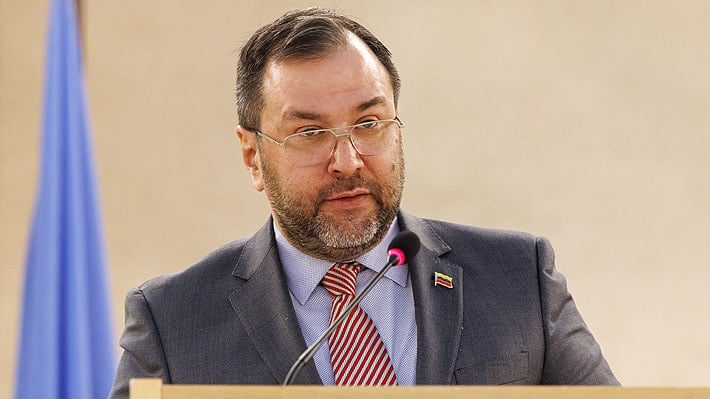Venezuela yesterday rejected a statement by UN Secretary-General Antonio Guterres on Thursday expressing concern at the recent escalation of tension between Georgetown and Caracas over the border controversy between the two countries.
According to teleSUR, in the text released by Foreign Minister Yván Gil through his account on the social network X, Vene-zuela reminded the Secre-tary General and the international community that, on February 25, 2018, the need to respect the Geneva Agreement of 1966 was warned about.
“However, turning its back on the application of the successive means contemplated in that agreement, the case was referred, without the will of one of the parties, to the International Court of Justice (ICJ),” the statement reads.
This action marked a turning point in the behaviour of Guyana, “which has abandoned the diplomatic path of direct dialogue, taking decisions that challenge international legality and threaten the peace and stability of the Caribbean region,” the text adds.
The Venezuelan government also reiterated the country’s call to establish direct talks “to advance a peaceful and mutually satisfactory resolution” of the territorial controversy.
“Likewise, the text ratifies the holding of the referendum in defense of the Guayana Esequiba on December 3. The results will mark the destiny in the struggle to assert Vene-zuela’s historical rights over the disputed territory”, it states.
According to teleSUR, the Vice President of the National Electoral Council (CNE), Carlos Quintero said that 53 percent of the activities foreseen in the schedule for the consultative referendum on December have been carried out.
A mock referendum will be held on November 19, which is “an important exercise to interact with the process in the 800 centers available,” said Quintero, calling on the population to participate.
Stéphane Dujarric, Spokesman for the Secretary-General said on Thursday that Guterres “trusts that both parties will demonstrate good faith and avoid any action that would aggravate or extend the controversy”.
The brief statement noted that “In January 2018, after carefully analyzing developments in the good offices process that had taken place over the preceding years, the
Secretary-General, in the exercise of the power and responsibility conferred on him by the 1966 Geneva Agreement, chose the International Court of Justice as the means that was next to be used for the solution of the border controversy between the two countries. The controversy is now before the Inter-national Court of Justice”.
The statement pointed out that the Secretary-General does not express a view on matters that are the subject of ongoing judicial proceedings.
Venezuela has sought to pressure Guyana into direct talks on the border controversy outside of the ongoing ICJ case. Its proposed controversial referendum on December 3rd is also seen as possibly leading to the annexation of Guyana’s Essequibo region.







